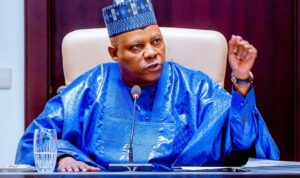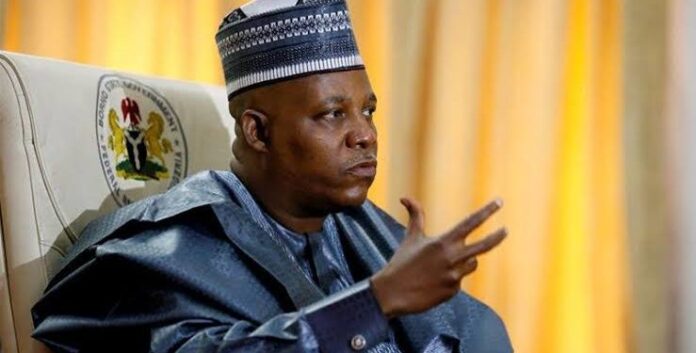Vice President Kashim Shettima has voiced his concerns regarding the severe effects of climate change on Nigeria, emphasizing issues such as unstable power supply, recurrent flooding, and food shortages as some of the dire consequences.
Speaking at the Africa Climate Forum 2024 in Abuja, Shettima highlighted that the challenges posed by climate change serve as a stark reminder that no African nation is shielded from its impacts. His statements were later shared with our correspondent.
“Nigeria, like many other countries, has faced the harsh realities of climate change. We have been vulnerable to unpredictable water levels, continuous flooding, disrupted livestock farming, inconsistent power supply, and food scarcity,” Shettima remarked.

He continued, “These climate-induced challenges are not merely calls for action; they serve as potent reminders that we are all susceptible to their effects. We must come together to exchange ideas, implement peer learning strategies, and agree on practical solutions that will advance our efforts.”
Represented by Rukaiya El-Rufai, the Senior Special Assistant to the President of the National Economic Council and Climate Change, Shettima urged attendees to actively work towards environmental preservation.
“As we engage in discussions today, I encourage everyone to acknowledge that any effective strategy for Africa’s climate future must start with safeguarding our ecosystems, promoting sustainable practices, and creating climate-resilient communities,” he stated.
Shettima stressed that Africa can only mitigate the adverse impacts of climate change by presenting a united front, which would not only ensure a greener future but also position the continent as a leader in global climate initiatives.
“I extend an open invitation to all governments, civil society organizations, the private sector, and the development community across our continent to collaborate,” he urged.
“Only through a cohesive approach can we effectively achieve sustainable development goals and create lasting social impact. Let us take this opportunity to formulate evidence-based action plans that will secure the necessary funding,” Shettima added.
Prof. George Nwangwu, the Director-General of the Global Centre for Law, Business, and Economy and the organizer of the Africa Climate Forum, noted that Africa requires substantial financial resources to progress.
“Experts in climate and development have proposed a minimum of $400 billion annually to address the losses and damages caused by extreme weather events worldwide. The lack of binding commitments further complicates Africa’s climate situation,” he stated.




